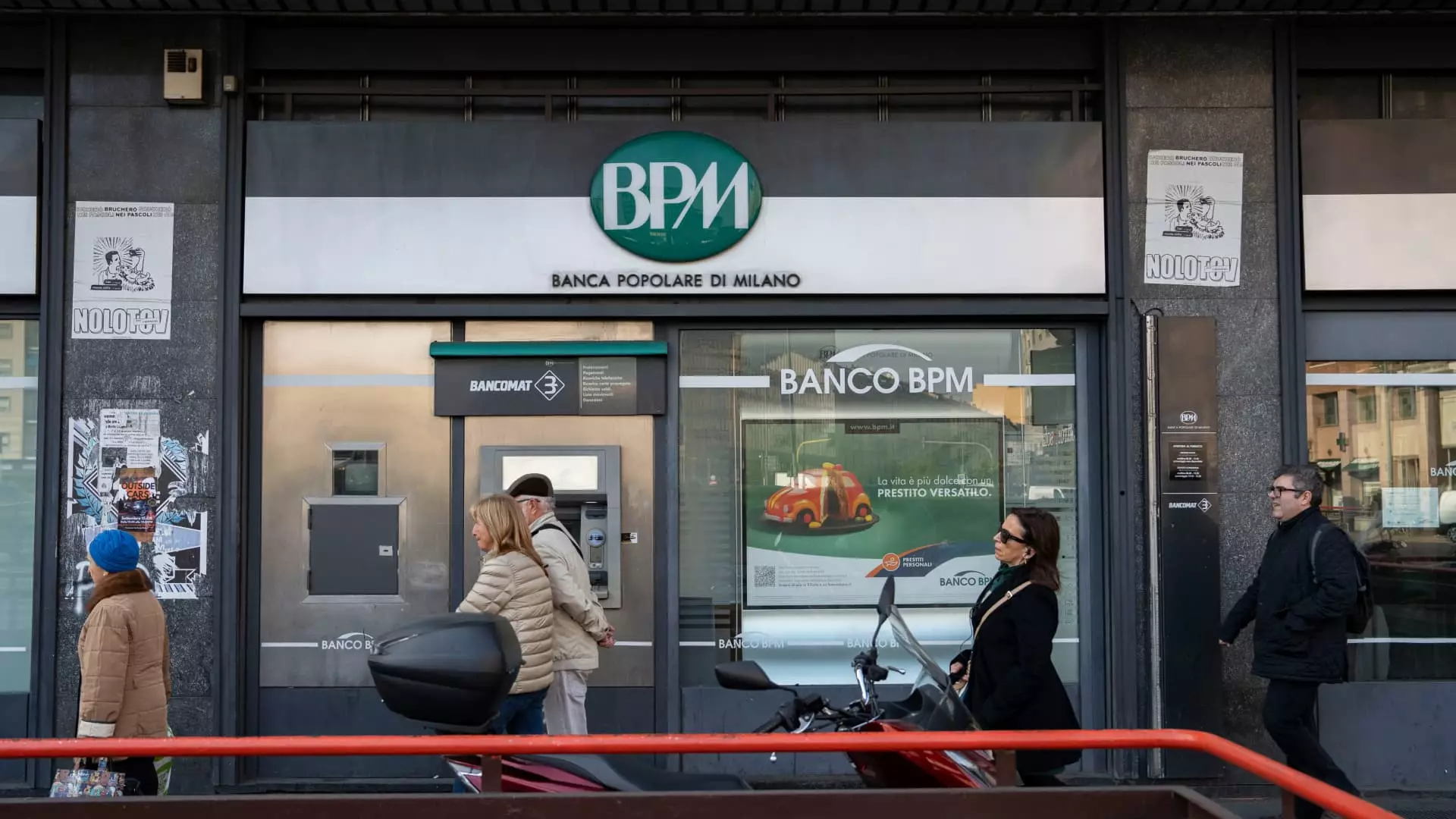The Italian banking sector is witnessing a significant tectonic shift, with Banco BPM at the center of a recent and unexpected takeover proposal from rival UniCredit, which has left many stakeholders anxiously reconsidering their positions. The calculated offer of 10 billion euros, equivalent to approximately $10.52 billion, has been deemed unsatisfactory by Banco BPM’s board of directors. In a CNBC-translated statement released on Tuesday, the board articulated that the offer not only lacked prior agreement but was also delivered under “unusual” conditions, undermining Banco BPM’s profitability and growth potential. Such a stance raises critical questions about the future dynamics of Italy’s financial landscape and the strategic maneuvers of major players within it.
The rejection of UniCredit’s offer underscores the ongoing discourse surrounding bank profitability in an evolving economic environment. Banco BPM’s board highlighted their institution’s promising financial trajectory, emphasizing both current profitability and the scope for future value creation that offers a stark contrast to UniCredit’s proposal. This rejection also casts a shadow on the aggressive growth strategies being pursued by UniCredit, especially in light of its recent pursuits of expansion into German markets like Commerzbank, a move that’s met with considerable governmental opposition. The notion that a rushed merger could compromise Banco BPM’s legal autonomy further enforces the idea that not all growth is advantageous; strategic and thoughtful deliberation is essential for long-term sustainability.
Ironically, while UniCredit positions itself as a proponent of a more powerful banking sector that can effectively compete on a global scale, its ambitions raise concerns regarding regional focus and stability. Banco BPM’s leadership pointedly criticized the implications of UniCredit’s potential expansion plans, indicating that such moves might dilute rather than enhance its geographical presence in Italy and other economically vibrant regions of Europe. This lens adds an important layer of analysis regarding mergers and acquisitions, as the potential for significant dilution of identity and regional impact looms large.
UniCredit CEO Andrea Orcel’s comments on Monday, in which he portrayed Banco BPM as a “historical target,” further fueled speculation about long-standing aspirational positioning within the market. However, the immediate market reactions tell a different story: UniCredit’s shares were flat while Banco BPM experienced a slight downward movement, hinting at investor hesitation and uncertainty surrounding the proposed deal. The close call in share price – 6.657 euros offered against a close of 6.644 euros – signals that many shareholders are not convinced of the attractiveness of this all-stock deal.
As the economic landscape shifts, Banco BPM’s staunch rejection of UniCredit’s takeover bid epitomizes a critical stand on maintaining autonomy and pursuing a tailored growth strategy. While the argument for larger, more competitive banking entities holds merit in the face of global pressures, the path to such consolidation must account for localized impacts and the nuanced realities of such mergers.
Banco BPM’s position is indicative of a broader theme within Italian banking, one that balances the aspirations for economic robustness against the imperative of sustained local relevance. The dynamics within this sector will continue to unfold, requiring keen observation from both market players and stakeholders alike as they navigate the intricate intersections between ambition, profitability, and structural integrity in the banking ecosystem.

Leave a Reply